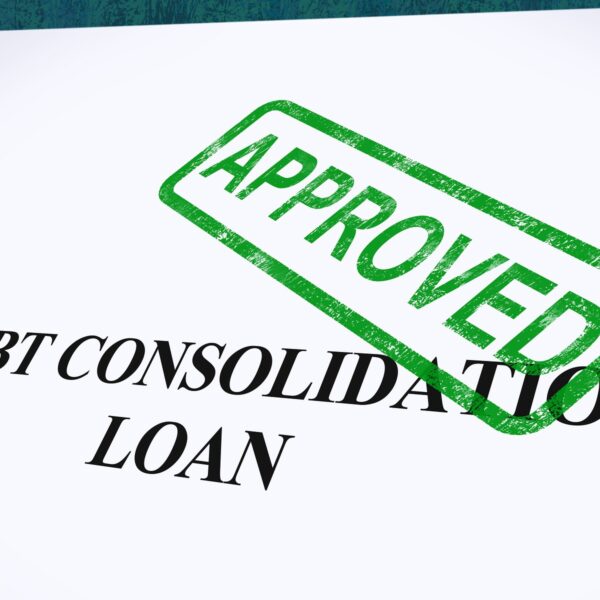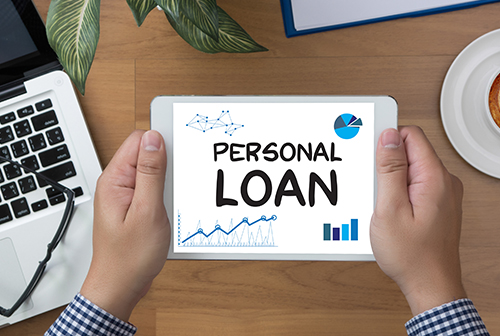Do you need funding for a specific purpose?
Finding the best unsecured personal loans based on your financial situation could give you the cash you need.
Unsecured loans require no collateral. They’re often used to refinanced other debt or to pay for something specific, such as a wedding, adoption, home repairs, or a major expense.
Comparing the options helps you narrow down offers to find the best terms and cheapest borrowing options.
Follow these tips to choose an unsecured personal loan.
Know Your Credit Situation
Your current credit score is one of the biggest factors in deciding if you qualify for a personal loan. It also goes into determining the interest rate you get.
If you don’t know what your credit score is, do a check to see where your number falls in the credit score range. If your score is 740 or higher, your credit is very good, and you’ll likely get good rates.
Good credit scores between 670 and 739 can still usually get good interest rates. When you fall into the fair category between 580 and 669, you’ll have a harder time getting competitive rates. If your score is below 580, your poor credit might make it difficult to qualify for a personal loan.
If your credit falls in one of the lower ranges, you might consider waiting to apply for the personal loan. Make changes to your financial situation to improve your credit score.
Paying everything on time helps increase your score. Paying extra on current debt to lower your debt-to-income ratio can also help you improve your credit score.
Applying for the loan after you increase your score could give you better options.
Consider Your Needs
Being clear on why you need the money and how much you need is important before looking for loans.
Limit your borrowing to as little as possible to reduce your borrowing costs. It’s tempting to accept as much money as you can qualify to receive, but you’ll pay less in interest with a smaller loan.
Consider your budget and how large of a monthly payment you can afford. A shorter repayment period can also help you reduce the costs of borrowing.
Gather Information
You’ll need information about your personal financial situation to apply for the loan. Gather that data now to make prequalifying and applying for the loan easier.
Lenders need to know your monthly income and expenses, such as your mortgage or rent and current loan payments you have. Collect your latest paystubs as proof of your income.
You’ll also need personal information, such as your Social Security number, previous addresses, and employer contact information.
Shop Around for Options
Look at several lenders to get multiple offers when shopping for an unsecured personal loan.
Conventional banks and credit unions often have the strictest requirements for unsecured loans. You might find better terms with a credit union if you’re already a member.
Borrowing from an online lender is often a faster application process. If you want your money quickly without going into a bank to apply, this might be a good option for you. Online lenders are sometimes more costly than traditional lenders.
Get Prequalified
To get an idea of the terms you can get, you can go through the prequalification process for a personal loan. It’s a good way to find out if you’ll likely get approved.
When you prequalify, the lender will do a soft credit check rather than a hard inquiry. This means it doesn’t affect your credit score for the check.
The prequalification gives you an idea of the interest rate and terms. You can also get an idea of what your payments will be if you choose that loan.
Compare the Terms
If you prequalify with multiple lenders, compare the prequalification terms you receive.
The interest rate, length of the loan, and monthly payments are a good place to start. Look at the total amount you’ll pay over the life of the loan with the different options. The total cost varies depending on the interest and how long you have the loan.
Review the Details
Once you narrow down your personal loan options, make sure you read the agreement thoroughly.
You can usually pay more toward your loan to pay it off early. However, some lenders charge prepayment penalties if you pay a large amount of your loan early. They do this since they’ll miss out on interest when you pay your loan early.
Look at the payment options. Some lenders might require you to set up automatic payments for the loan.
Check on options for picking your own payment date or options for financial hardship forbearance. Check on late fees in case you miss a payment.
When you’re ready to officially apply for a loan from a lender, ask about what you need for the process. You’ll likely need documentation to show your identity, prove income, and verify your address.
Consider Other Options
It’s a good idea to check out other loans and financing options. You might find a better deal using other methods.
Secured loans are an option if you don’t qualify for an unsecured loan. This can happen if your credit score isn’t high enough. With a secured loan, you use something such as a car, home, or savings account as collateral.
One option is a payday loan if you need a small, short-term loan. Payday loans are sometimes available for people with little credit or poor credit scores. You can view more info here to see if a payday loan might work for you.
Borrowers with good credit might qualify for a credit card with 0% interest as an introductory rate. If your financing needs are on the lower end and you plan to pay it off quickly, this can be a low-cost option.
Find the Best Unsecured Personal Loans
Searching for the best unsecured personal loans for your situation ensures you get the money you need while cutting your costs. Comparing terms and finding the lowest cost for you makes the loan a better deal.
Image Credits: Josh Appel




Like this article? Share with your friends!